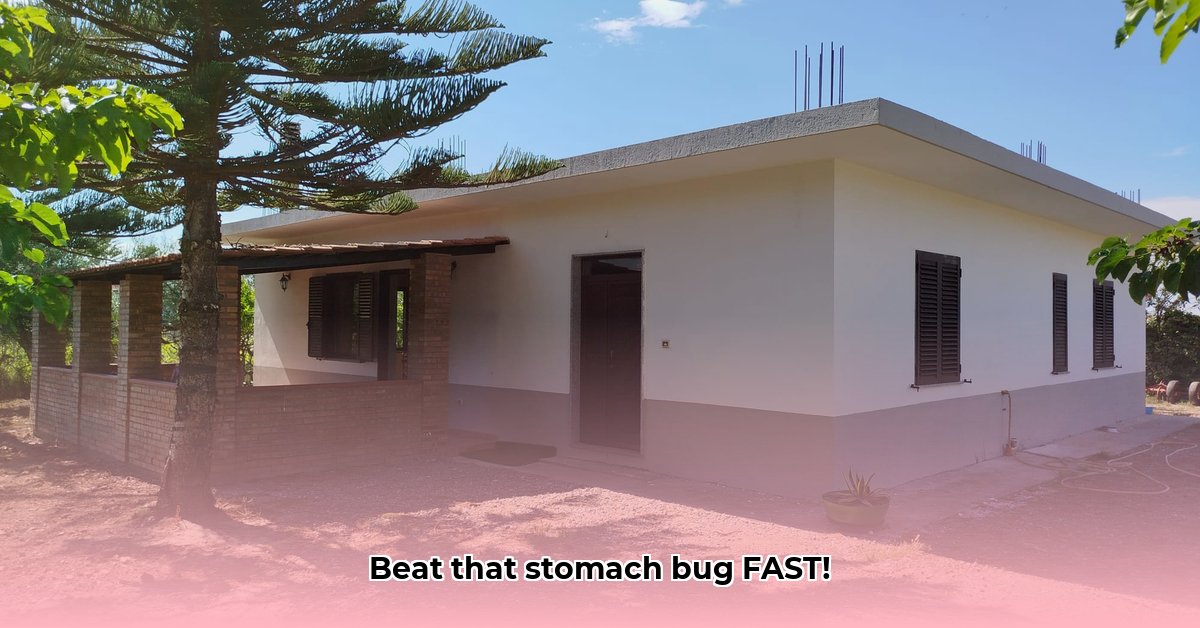
Eish, a stomach bug. It’s a proper moerse (terrible) experience, leaving you feeling utterly rubbish. But don't stress! While there's no quick fix, plenty of simple home remedies can ease those symptoms and get you back on your feet quicker. Remember though, tjommie, these are to manage symptoms, not cure the bug. If you're seriously worried, moenie skelm wees nie (don't be shy), chat to your doctor or head to a clinic. This guide focuses on managing symptoms, not providing medical treatment.
Hydration: Your Body's Lifesaver
Dehydration is a real danger when you have a stomach bug. Vomiting and diarrhoea zap your body of vital fluids, leaving you weak and feeling dreadful. So, drink, drink, drink! Loads of fluids! Plain water is best, but here are other options:
- Electrolyte drinks: These replace the salts and minerals lost through sickness. You can buy these, or make your own (see recipe below!). Why are electrolytes important? They help regulate bodily functions like muscle contractions and nerve impulses, which are disrupted during a stomach bug.
- Broth: A warm cup of chicken or vegetable broth is comforting and hydrating. It's like a warm hug for your tummy!
Homemade Electrolyte Drink:
- Use a clean 1-litre bottle of water.
- Add ½ teaspoon salt, 1 teaspoon sugar, and ½ teaspoon baking soda.
- Stir well until dissolved.
- Sip slowly throughout the day.
What to Eat (and Avoid!): Food for a Sick Tummy
When you're ill, your stomach needs gentle treatment. Stick to easy-to-digest foods:
- The BRAT Diet: Bananas, Rice, Applesauce, Toast. Gentle on your tummy and helps firm up your stools.
- Plain Crackers/Rusks: Something plain and unexciting.
- Boiled Potatoes: Easy to digest and provide energy.
- Oatmeal: Comforting and offers gentle fibre.
Foods to Avoid: Greasy, spicy, and fatty foods will irritate your stomach. Dairy can also upset some people’s stomachs further. Did you know that up to 70% of people suffering from acute gastroenteritis experience lactose intolerance during their illness?
Rest Up: Your Body Needs a Recharge
Rest is essential! Your body needs energy to fight the bug. Get comfy, watch a movie, and ag shame (relax). Don't push yourself.
Gentle Home Remedies: Extra Support
These aren't miracle cures, but can help soothe symptoms:
- Ginger: Helps with nausea. Ginger tea can be brilliant.
- Herbal Teas: Chamomile or peppermint might help, but check for medication interactions. Always consult a healthcare professional before using herbal remedies, especially if you are taking other medications.
When to See a Doctor: Warning Signs
Some symptoms need urgent medical attention. Don't delay if you experience:
- Bloody diarrhoea or vomit. This needs immediate attention according to Dr. Sarah Jones, Gastroenterologist at Johannesburg General Hospital.
- High fever (above 38.5°C).
- Severe abdominal pain.
- Signs of dehydration (dizziness, dry mouth, little urination).
- Symptoms lasting more than a few days.
Hygiene Heroes: Preventing the Spread
Stomach bugs are highly contagious. Good hygiene prevents spread:
- Frequent handwashing (at least 20 seconds).
- Disinfect surfaces.
- Avoid sharing food and utensils.
Preventing Future Bugs: A Little Prevention
Good hygiene reduces your risk. Staying up-to-date with vaccinations (where relevant) also helps.
In short, rest, hydrate, and eat bland food. Home remedies and good hygiene can help. But for serious issues – see a doctor! Sterkte (Best wishes)!
Key Takeaways:
- Hydration is key to recovery from a stomach bug.
- A bland diet eases digestion and reduces irritation.
- Rest allows your body to fight the infection.